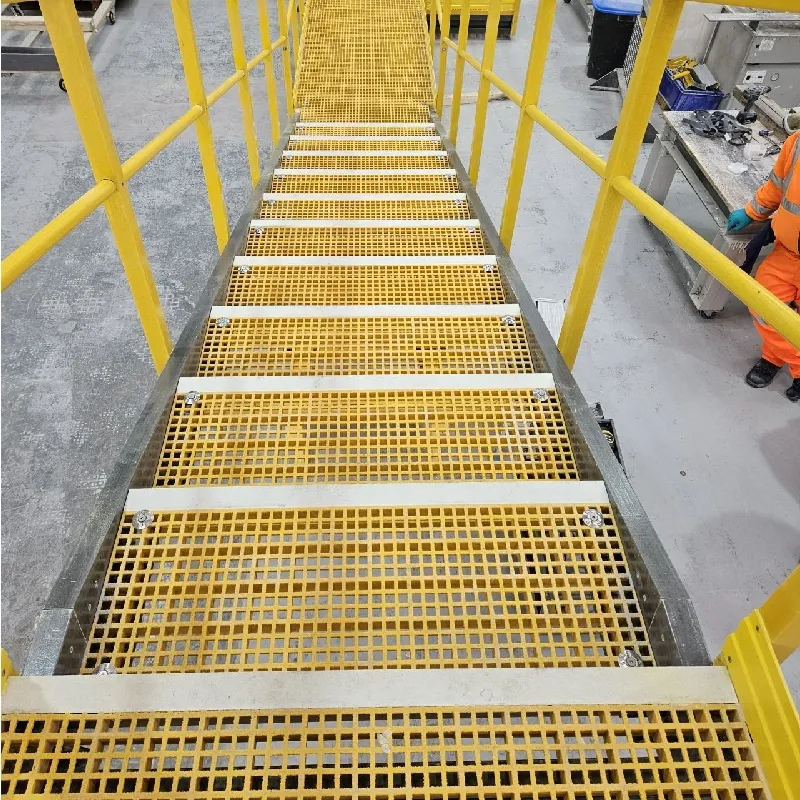loading...
- No. 9, Xingyuan South Street, Dongwaihuan Road, Zaoqiang County, Hengshui, Hebei, China
- admin@zjcomposites.com
- +86 15097380338
- Welcome to visit our website!
Alternative Solutions for FRP Softener Tanks in Water Treatment Applications
Understanding FRP Softener Vessels A Comprehensive Overview
In the realm of water treatment, a fundamental component that has gained significant attention is the FRP (Fiberglass Reinforced Plastic) softener vessel. This innovative technology serves a critical role in various industrial applications, especially in environments where water hardness needs to be managed effectively.
What is an FRP Softener Vessel?
An FRP softener vessel is a container designed to house ion exchange resin, which is used to soften hard water by removing dissolved minerals such as calcium and magnesium. These minerals are often responsible for scale buildup in pipes and equipment, leading to inefficiencies and increased maintenance costs within industrial systems. By utilizing an FRP vessel, industries can maintain optimal water quality, enhancing operational efficiency and prolonging equipment life.
The construction of an FRP vessel typically involves a composite of fiberglass and resin, providing several advantages over traditional materials like steel or concrete. FRP vessels are lightweight, corrosion-resistant, and have a longer lifespan. These properties make them particularly suitable for a variety of environments, including those exposed to harsh chemicals or fluctuating temperatures.
Advantages of FRP Softener Vessels
1. Corrosion Resistance One of the standout benefits of FRP vessels is their resistance to corrosion. Unlike metal vessels that can rust when exposed to water and chemicals, FRP remains unaffected by most corrosive substances, ensuring durability and reducing the need for frequent replacements.
2. Lightweight Design The lightweight nature of FRP makes it easier to handle, transport, and install. This attribute not only saves on labor costs but also simplifies logistical challenges often associated with heavy equipment.
3. Thermal and Electrical Insulation FRP provides excellent thermal and electrical insulation properties, making it a safer option in environments where temperature variations and electrical hazards are a concern.
4. Customizability Manufacturers can easily tailor FRP vessels to meet specific requirements, including size, shape, and capacity. This flexibility allows for a wide range of applications, from small residential systems to large industrial setups.
frp softener vessel

5. Cost-Effectiveness Although the initial investment in FRP vessels may be higher than traditional alternatives, the long-term savings resulting from reduced maintenance, increased efficiency, and lower energy costs often justify the expense.
Applications of FRP Softener Vessels
FRP softener vessels are utilized across various sectors, including
- Industrial Manufacturing Many manufacturing processes rely on softened water to prevent mineral buildup in boilers, cooling systems, and machinery.
- Food and Beverage Industry Maintaining high water quality is critical in food production and beverage preparation, making FRP softener vessels essential.
- Chemical Processing In chemical plants, water softening prevents scaling in reactors and heat exchangers, enhancing overall process efficiency.
- Residential Water Treatment Many households use FRP softener vessels as part of their water purification systems, ensuring a consistent supply of soft water for daily use.
Conclusion
In conclusion, FRP softener vessels represent a robust solution for managing water hardness across a variety of applications. Their combination of durability, corrosion resistance, and adaptability makes them an invaluable asset in modern water treatment processes. As industries continue to prioritize efficiency and sustainability, the use of FRP materials is likely to expand, paving the way for innovations in water management technology. Understanding and investing in this technology could prove beneficial for anyone looking to enhance water quality in both industrial and residential settings.
-
The Rise of FRP Profiles: Strong, Lightweight, and Built to LastNewsJul.14,2025
-
SMC Panel Tanks: A Modern Water Storage Solution for All EnvironmentsNewsJul.14,2025
-
GRP Grating: A Modern Solution for Safe and Durable Access SystemsNewsJul.14,2025
-
Galvanized Steel Water Tanks: Durable, Reliable, and Ready for UseNewsJul.14,2025
-
FRP Mini Mesh Grating: The Safer, Smarter Flooring SolutionNewsJul.14,2025
-
Exploring FRP Vessels: Durable Solutions for Modern Fluid HandlingNewsJul.14,2025
-
GRP Structures: The Future of Lightweight, High-Performance EngineeringNewsJun.20,2025
